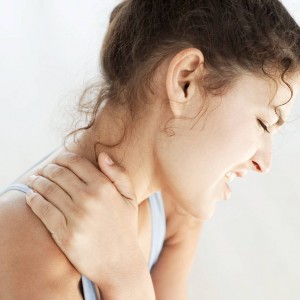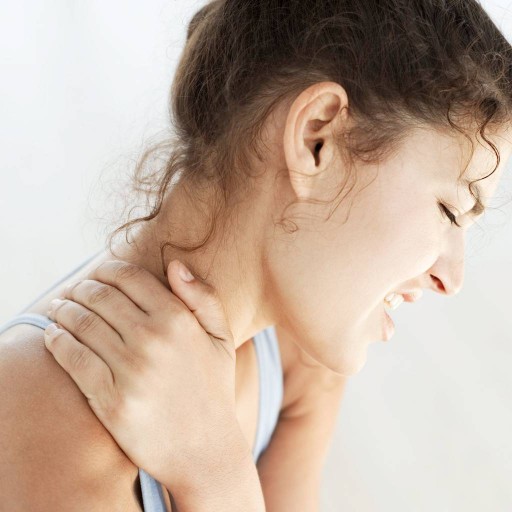Weather Effects On Whiplash Injury Pain
 Do changes in the weather effect Whiplash injury pain? The answer is… Probably So! Despite lack of “double blind scientific studies”, our Minneapolis/ St. Paul Chiropractic office has heard so many patients’ reports of this, and seen so many “set-backs” of patients’ injuries related to these external events, it’s hard to believe that there’s not a connection. To make the case for why this is so, and why weather might be able to aggravate injury symptoms, first consider that nerves carry a variety of signals (including all of our sensations), both about what’s happening inside of us, and what’s happening outside of us. Then consider that due to an injury like whiplash the nerves might be working differently. Then ask:
Do changes in the weather effect Whiplash injury pain? The answer is… Probably So! Despite lack of “double blind scientific studies”, our Minneapolis/ St. Paul Chiropractic office has heard so many patients’ reports of this, and seen so many “set-backs” of patients’ injuries related to these external events, it’s hard to believe that there’s not a connection. To make the case for why this is so, and why weather might be able to aggravate injury symptoms, first consider that nerves carry a variety of signals (including all of our sensations), both about what’s happening inside of us, and what’s happening outside of us. Then consider that due to an injury like whiplash the nerves might be working differently. Then ask:
- What happens to nerves directly from car accident injuries
- What happens to nerves in a “second-hand” way from car accident injuries
- How do nerves work normally
- How do nerves work differently after an injury
When the body gets thrown forcibly about during a car accident the nerves exiting from the neck and back can get stretched or torn. The same can happen to their protective coverings. If they’re pulled up hard against another body part, or out and out “banged” against something, they can get hurt too, much like hitting the “crazy bone” at the elbow. Since nerves have blood vessels, they also get bruised when banged, stretched, or torn.
With “Whiplash”, the joints, muscles, ligaments, discs and other tissues are definitely affected. The injuries produce joint motion that’s either less than normal, or too mobile and unstable, and muscles that go into spasm or become limp and weak. Ligaments and discs can be overly stretched or torn. Nerves, nerve fibers, and nerve endings picking up all this “extra” sensory signaling from all the affected body parts, including themselves, generally become hyper-active or irritable. Their electrical signals become quicker, and pain signals will travel faster. When joints shut down (stop moving) some electrical signals that communicate motion, slow or shut down too. That’s because those nerve fibers now don’t have as much to do. This lets pain signals have more dominance, and so there is more pain.
Nerves carry electrical signals, both to make things work, and to allow various feelings, motions, pressures, positions, and other sensations. The nervous system is laid out much like the branches or roots of a tree, continuously spreading out and getting smaller and finer, until every body part is reached. The smallest of this branching, the nerve fibers/fibrils, have specialized endings in many places that pick up unique sensations that they were designed for. Various kinds of touch, heat, cold, pressure and motion are some examples. These nerve endings need certain amounts of stimulation to generate and send electrical signals to the brain, and the stimulation has to be the type that the nerve ending was designed for.
But…, when the nerves are in a post-injury, hyper-irritable state, they take less stimulation to “fire” their signals. The stimulation level can get so low, along with altered signals from damage to those specialized nerve ending sensors, that they even start responding to sensations they weren’t built to specialize in. Along with this, joint tissues are richly supplied with nerve endings that “sense” the expansion and contraction of these “vacuum-like containers” in response to external changes in pressure – (like the barometric hi’s and lows the weather man reports about). When the joints, their “containers”, or both are injured, the changed motion pattern, tissue damage and nerve ending irritation produces increased sensitivity to less, and wider varieties of stimulation.
All this changed electrical activity and “sensing” can spill over into the pain nerves that get even more excited, and in turn gets reported by patients (uniquely so because each nervous system and injury is) as:
1. The dampness bothers me!
2. The dry, cold makes me ache more!
3. The heat and humidity make me feel worse!
4. I felt the rain storm coming because my back pain increased!
Weather, then seems to be able to influence pain. It can because of the changes we know that happen in the nerves and nervous system when auto accidents or other events cause injury. If involved in a car or other motor vehicle accident, always seek out competent health care professionals, skilled in the evaluation and care of these types of injuries.
By Dr. William T. Norlin Chiropractor in Minneapolis/St Paul, Minnesota











